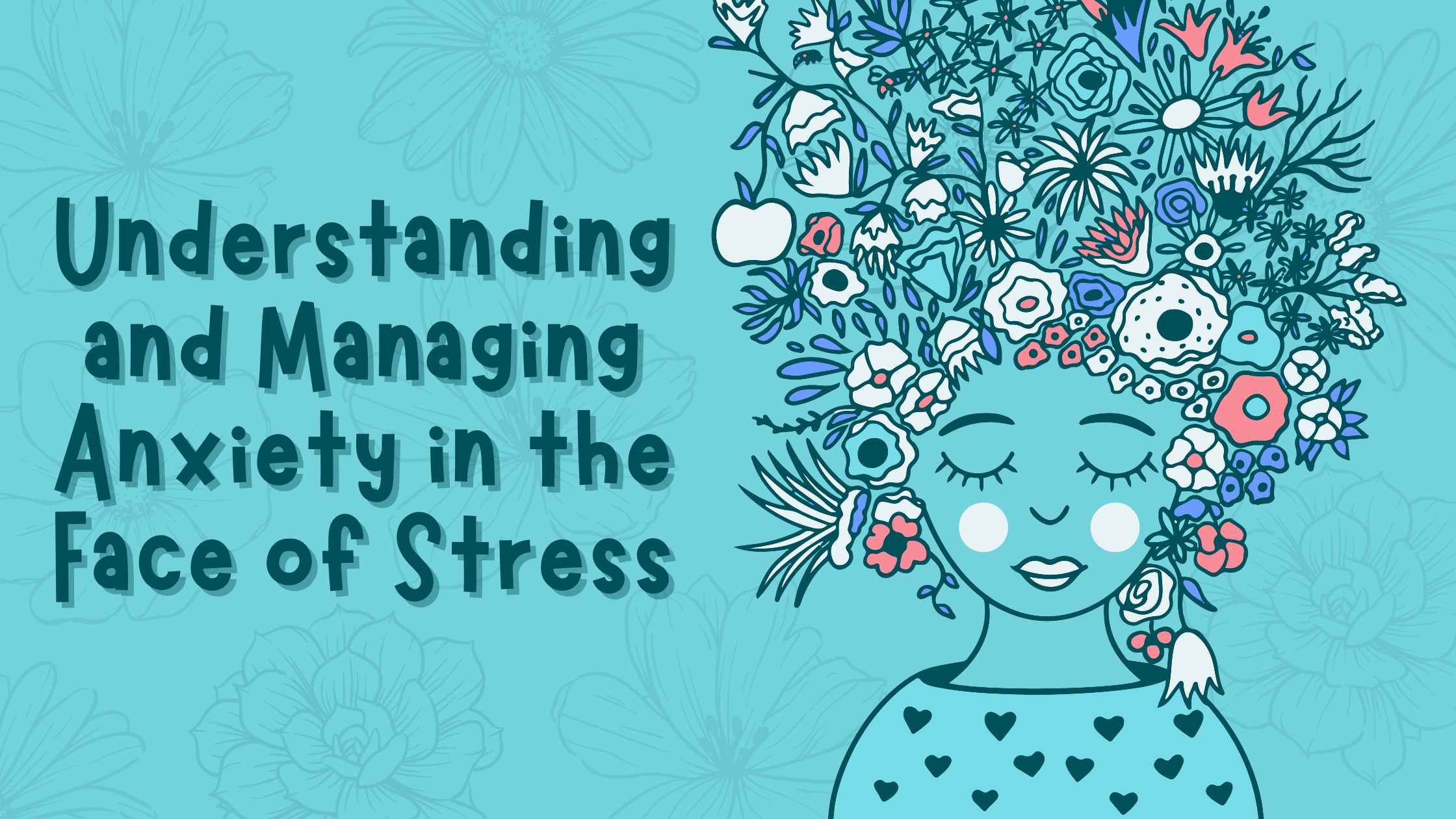Understanding and Managing Anxiety in the Face of Stress
Anxiety is an emotion that has become increasingly common in today’s fast-paced society. It is a state of fear and apprehension, often accompanied by physical symptoms such as rapid breathing or sweating. Anxiety can have short-term and long-term effects on our mental health, relationships, work performance, and overall quality of life.
The relationship between stress and anxiety is complex but significant to understand. Pressure can create a feeling of worry or uneasiness, which may lead to anxious thoughts or behaviors if not addressed. On the other hand, high anxiety levels can also cause increased stress due to constant worrying about the future and potential outcomes. In either case, it’s important to recognize when these emotions are present to manage them effectively before they start negatively impacting your life.
The purpose of this blog about anxiety is to give readers an in-depth understanding of what fear is, how it affects us, and how to manage it effectively. We will explore anxiety symptoms, the relationship between stress and anxiety, and different techniques for dealing with anxiety. We will also provide tips on reducing stress levels and creating better mental health habits.
We hope this blog will help you better understand anxiety and provide you with the tools to manage it effectively in your own life. Thank you for taking the time to read our blog!
We wish you all the best on your journey toward improved mental health. Remember that.
Understanding What Anxiety is
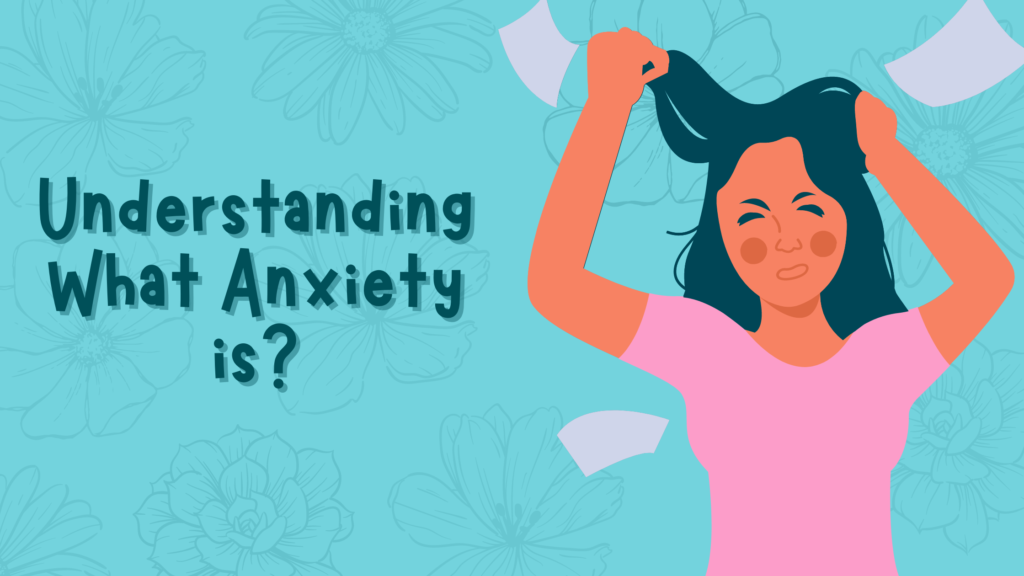
Anxiety is an emotional state characterized by fear, worry, and uneasiness. It can range from mild to severe, with physical symptoms such as rapid breathing, sweating, elevated heart rate, or trembling. Factors such as life events or experiences, physical or psychological stressors, and genetics can trigger anxiety.
Types of anxiety disorders include Generalized Anxiety Disorder (GAD), Panic Disorder, Social Anxiety Disorder, and Post Traumatic Stress Disorder (PTSD). Each condition has its unique set of symptoms and treatment methods. Identifying which type you may have to receive the most effective treatment is essential.
Anxiety can have short-term and long-term effects on our mental health, physical health, relationships, work performance, and overall quality of life. It is essential to understand that anxiety is not something to be ashamed of or embarrassed about – it is an actual medical condition that requires proper diagnosis, treatment, and management. If you are experiencing any of the symptoms associated with anxiety, it is essential to seek help from a medical professional.
There are two leading causes of anxiety which are
Physical Causes
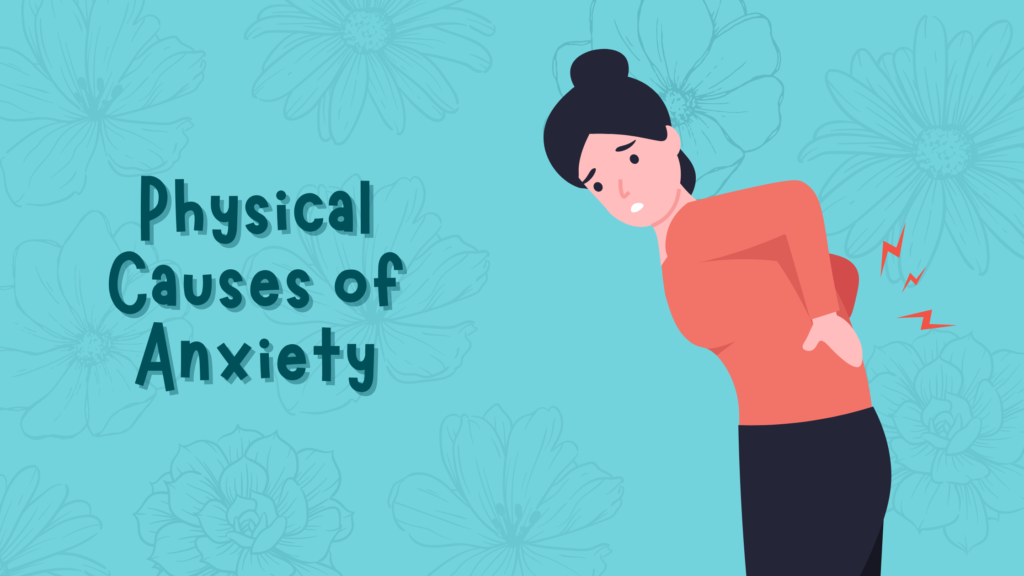
Physical causes of anxiety may include an imbalance in hormones, genetics, or other medical conditions such as hypoglycemia, heart disease, thyroid problems, and breathing disorders. In addition to these physiological factors, lifestyle choices such as substance abuse and prolonged periods of stress can also contribute to anxiety.
Psychological Causes
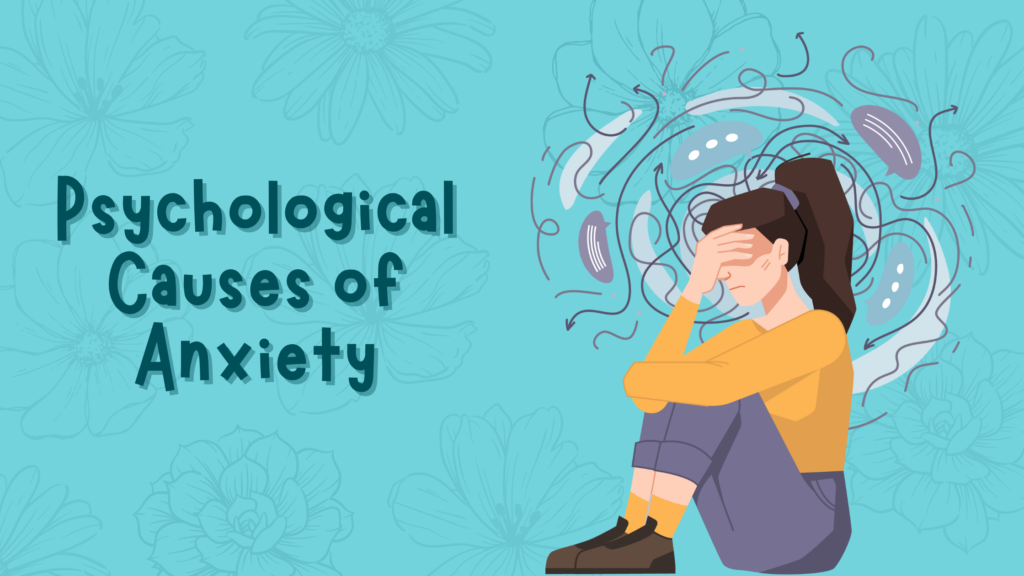
Psychological causes of anxiety may stem from childhood experiences or stressful life events such as the death of a loved one or divorce. Cognitive distortions – thoughts that are unhelpful or irrational – can also lead to heightened levels of anxiety by causing feelings of fear and insecurity. People with certain personality traits, such as perfectionism, may also be more prone to experiencing high anxiety levels due to their need for control over situations. Finally, individuals who experience significant life changes are at greater risk for developing an anxiety disorder because the body’s natural response is to increase the production of hormones associated with fight-or-flight responses to prepare for potential danger. These hormones can cause an intense feeling known as “anxiety.”
Linking Stress and Anxiety and How to Cope with This
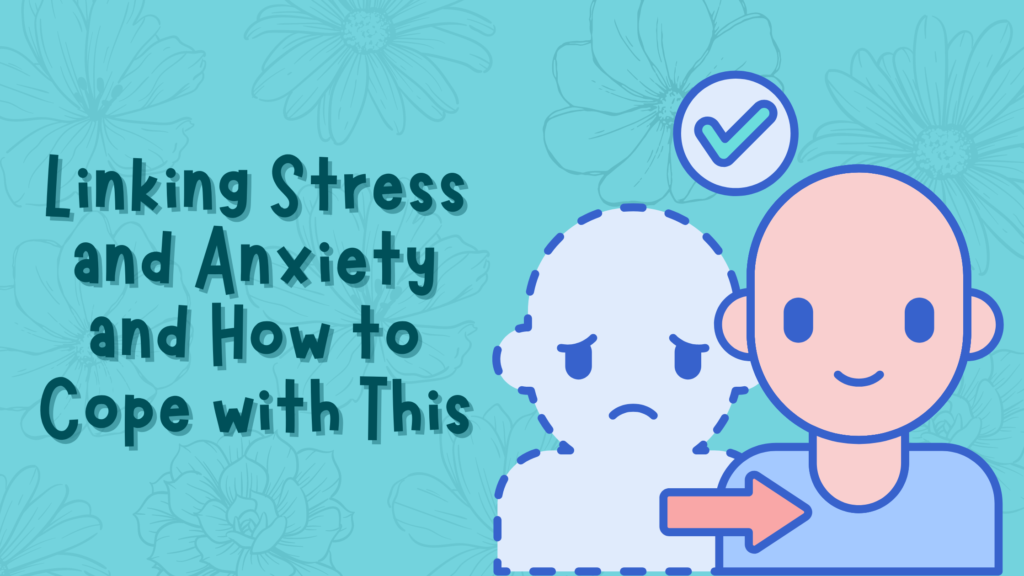
The relationship between stress and anxiety is well-known, as they are often linked. Stress can be a significant factor in developing pressure, triggering anxious feelings and physical symptoms. Stress can stem from various sources, such as work, relationships, finances, or health problems. It is essential to understand these sources of stress to manage it effectively.
Stress management techniques include engaging in physical activity, getting adequate rest and sleep, avoiding or minimizing caffeine consumption, learning relaxation techniques such as meditation or yoga, talking with a trusted friend or family member about your worries and concerns, journaling to express thoughts and feelings, eating healthy meals and snacks throughout the day, and participating in regular enjoyable activities to reduce stress levels.
A therapist or counselor can provide support and guidance and teach you strategies for managing your symptoms. In addition, talking to a mental health professional can be incredibly beneficial in helping you cope with stress and anxiety. It is essential to recognize that while pressure can increase the risk of developing an anxiety disorder, it is not the only factor at play. Other risk factors may include genetics, environment, and underlying medical issues.
By recognizing the connection between stress and anxiety, you can manage your symptoms to improve your mental health.
Anxiety disorders can cause intense fear and insecurity, leading to physical symptoms such as rapid heartbeat, sweating, trembling, muscle tension, headaches, and fatigue. Aside from physical discomfort, anxiety can also affect relationships, work, and other daily activities. It is essential to seek help with stress because it is an actual medical condition that can significantly impact one’s quality of life.
If you or a loved one is experiencing anxiety, it is essential to seek professional help. A mental health professional can provide diagnosis, treatment, and support to help manage symptoms. Treatment options may include cognitive-behavioral therapy (CBT), medication, lifestyle changes, relaxation techniques, or a combination of these approaches.
By understanding the link between stress and anxiety, as well as accessing proper support and treatment, it is possible to manage symptoms and live a healthy, fulfilling life.

